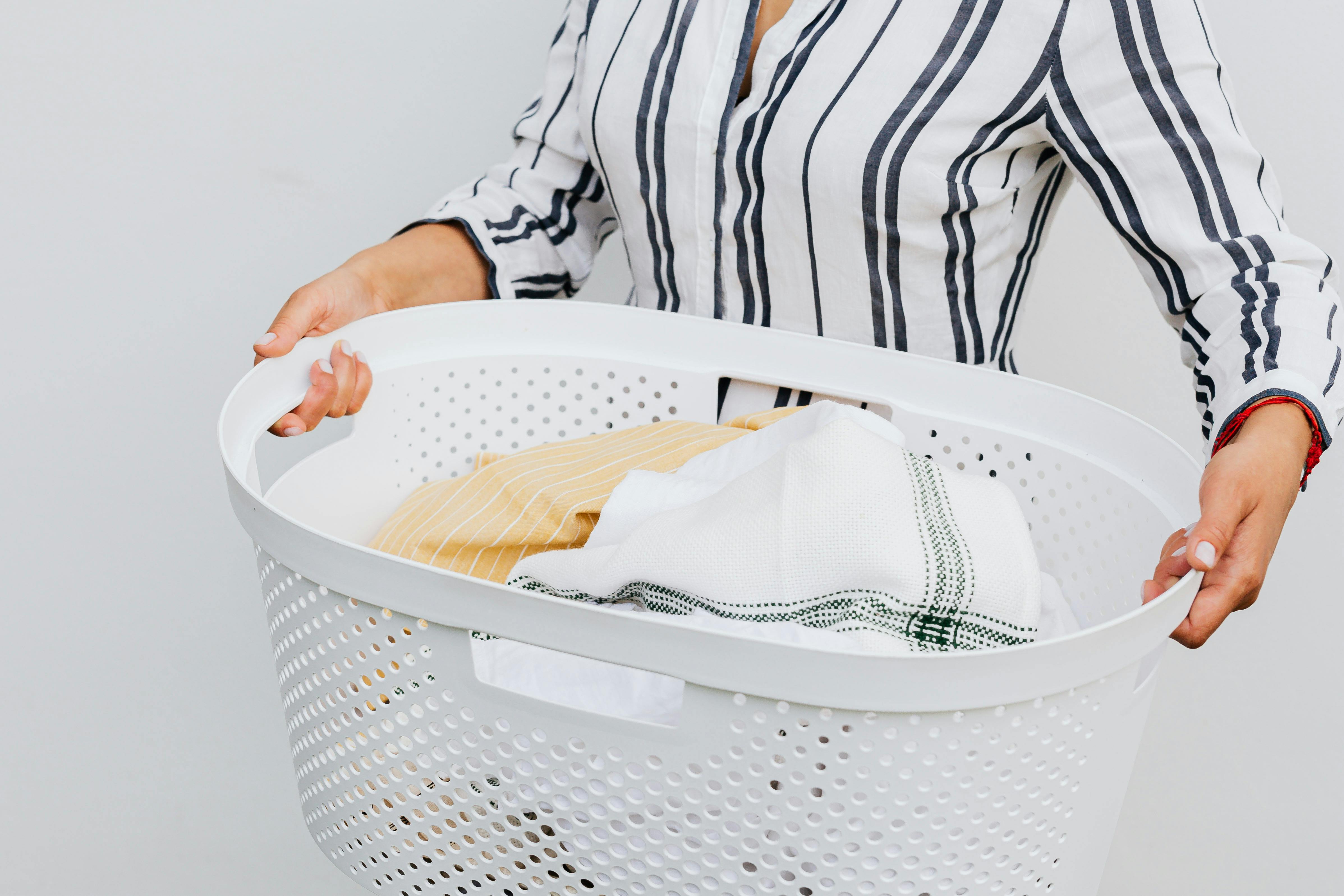Why It Is Necessary To Keep Dirty Laundry Away From Fresh Pile
Weve all been there- the pile of laundry on the floor, a colourful mishmash of clothes that seems to grow by the minute. But its more than just an organisational nightmare. Lets explore why keeping dirty laundry away from the fresh pile.

Why It Is Necessary To Keep Dirty Laundry Away From Fresh Pile
Let's set the scene: you're about to do the laundry after what feels like days of putting it off. Your laundry basket is full, your patience is running thin, and there's a nagging sense of guilt because you didn't tackle it sooner. As you add a fresh load of clothes to the washing machine, a thought crosses your mind: should I mix these dirty clothes with the ones that have just been freshly washed? While it might seem harmless, the simple act of combining dirty laundry with clean items can lead to some unforeseen consequences. Keeping dirty laundry away from your fresh pile might sound like a small thing, but it's a rule that's worth sticking to. Let's explore why this practice is essential, not just for your laundry routine, but for your overall well-being.
1. The Hygiene Factor: Why Clean and Dirty Don't Mix
We all know the saying "cleanliness is next to godliness," but when it comes to laundry, this couldn't be more true. Dirty clothes often carry bacteria, sweat, oils, and even germs that we don't necessarily see, but we can certainly feel. Imagine throwing those items on top of freshly washed clothes. The clean pile, once free of odour and dirt, could become a breeding ground for bacteria that thrive in the dampness of your laundry room.
A clean shirt or set of sheets shouldn't become a carrier of germs simply because it was thrown into a basket of unwashed clothes. For instance, a gym towel with traces of sweat or a pair of worn shoes could contaminate a fresh load of laundry with more than just the smell of the outdoors. In addition, dirty clothes may be harbouring stains that haven't been treated yet – mixing them with clean clothes could cause these stains to transfer, leading to further frustration in an already tedious laundry cycle.
Keeping dirty laundry separate not only ensures your clean clothes stay pristine but also prevents any unnecessary exposure to bacteria, fungi, or other unwelcome guests that could cling to your clothes.
2. Avoiding Cross-Contamination: It's More Than Just Stains
It's tempting to toss everything into one big laundry pile, especially when you're in a hurry. However, doing this can lead to an unpleasant case of cross-contamination. Consider that sticky chocolate stain on your favourite jumper. If you mix that jumper with a pristine white t-shirt, you're asking for trouble. Not only can the stain spread to other garments, but it can also result in permanent discolouration.
Cross-contamination is a sneaky culprit that can ruin your laundry experience. Different fabrics require specific washing methods, and mixing them could result in unexpected damage. For example, delicate woollens may shrink or become misshapen if washed with rougher fabrics, while sturdy denims could leave a noticeable residue on lighter clothes. By keeping dirty laundry away from the fresh pile, you avoid this unintentional mess, giving each fabric the care it deserves.
Moreover, certain items – like towels or socks – can release loose fibres or lint during the wash. Throwing these with your freshly laundered clothes could lead to a flurry of lint clinging to those otherwise spotless garments. Keeping laundry segregated by its level of cleanliness and fabric type is just good practice.
3. Preserving the Life of Your Clothes
If you've ever found your favourite shirt fading or a pair of jeans developing holes, you know how disappointing it can be. When it comes to laundry, your clothes need special care to ensure they last longer. The act of combining freshly washed clothes with dirty ones can inadvertently shorten their lifespan.
Think of it like this: your fresh laundry is in a delicate state after being washed, soft and pristine, waiting to be neatly folded. When dirty laundry is thrown on top, the unwashed clothes can rub against the clean garments, causing friction that leads to wear and tear. Over time, this continuous process of friction between clothes can cause fabrics to degrade faster.
For instance, placing a pair of heavily worn jeans on top of delicate silk blouses could not only cause the fabric to fray but could also affect the overall texture. Also, repeated mixing of fresh and dirty laundry leads to the risk of missing stains or failing to treat problem areas properly. Over time, stains left untreated on dirty clothes may seep into the fresh pile, creating unnecessary wear and tear on fabrics that deserve a bit more TLC.
4. Mental Clarity and A Sense of Order
There's a subtle but very real emotional impact of keeping dirty laundry away from your fresh pile. Think of it this way: when your laundry room is neat and orderly, you feel a sense of control and accomplishment. But when dirty laundry invades your freshly washed clothes, it creates a sense of chaos, an ongoing battle between cleanliness and disorder.
In a world where things often feel out of control, laundry is one task where a bit of order can make a significant difference. Keeping dirty laundry separated from the fresh pile provides not just a practical benefit, but a psychological one as well. It simplifies the task, reduces the risk of accidental damage, and allows you to approach the chore with a clear head. Plus, that feeling of satisfaction when you open your wardrobe or closet to a fresh stack of clean clothes is unbeatable.
This is also where routines come into play. By keeping your laundry system streamlined, you develop a sense of rhythm, making the entire process less stressful. The next time you face the laundry mountain, you'll be grateful for the clarity you've created by sticking to this simple rule.
5. The Environment: Making the Most of Your Laundry Detergent
One thing we often overlook when we toss everything into the wash without much thought is the environmental impact. By keeping your fresh and dirty laundry separate, you're also ensuring that your washing machine works more efficiently. Washing a load of fresh clothes separately from dirty ones means you'll be able to use the appropriate settings for each load, making the most out of your detergent and energy.
Not only does this reduce the risk of re-washing, which is both wasteful and expensive, but it also cuts down on the overall wear and tear on your washing machine. The more careful you are about keeping your laundry sorted, the less likely you are to overuse detergents, energy, or even water.
Moreover, a more strategic approach to your laundry can also reduce the need for re-washing or unnecessary treatments like stain removers. This, in turn, benefits not only your wallet but also the environment. Using less detergent and fewer cycles is just one small way we can help reduce our carbon footprint.
Products Related To This Article
1. HomeStorie Beige And White Eco-Friendly Foldable Bamboo Laundry Basket Hamper With Lid
2. DREAM WEAVERZ Large Cylinder Shaped Beige Woven Laundry Basket
3. Kuber Industries Black Printed Durable Laundry Bag With Lid 7 handles
4. Kuber Industries Blue Printed Foldable Laundry Bag
5. FABINALIV Yellow And Grey Foldable Cotton Laundry Bag With Lid
6. Prettykrafts Set Of 2 White And Navy Blue Mushroom Print Foldable Laundry Basket
7. Aura Brown 3 Pieces Printed Foldable Laundry Bags
8. HOUSE OF QUIRK Yellow Printed Laundry Basket
9. HOKIPO White And Blue Printed Foldable Laundry Basket With Wheels
10. Prettykrafts Grey Foldable Laundry Basket With Lid
At first glance, keeping dirty laundry away from the fresh pile might seem like a small, even trivial act. But as we've explored, the benefits extend far beyond mere tidiness. From maintaining hygiene to preserving the integrity of your clothes, fostering mental clarity, and doing your bit for the environment, this simple habit brings a world of advantages. It's an easy yet effective way to elevate your laundry game, turning a mundane task into an opportunity for a little extra care.
So, next time you stand over your laundry pile, remember: a bit of separation can go a long way. Keeping your laundry sorted not only preserves the life of your clothes but also gives you a moment of peace in an otherwise chaotic world.
Disclaimer: The images used in this article are for illustration purpose only. They may not be an exact representation of the products, categories and brands listed in this article.















